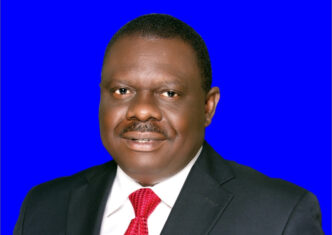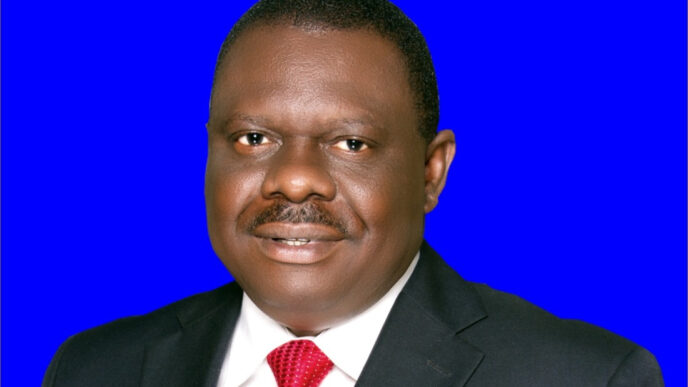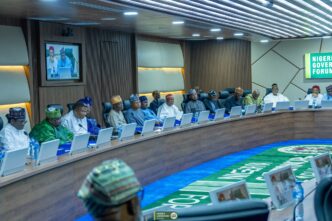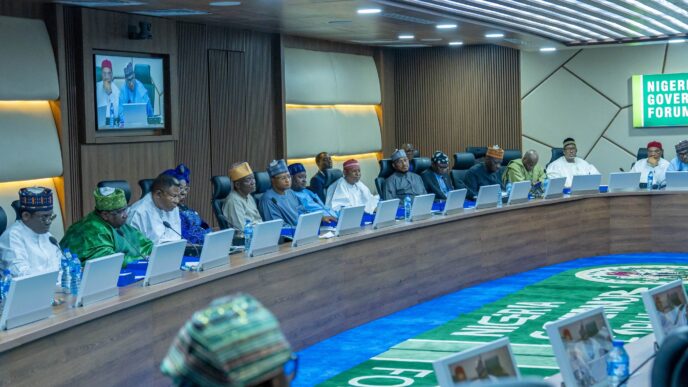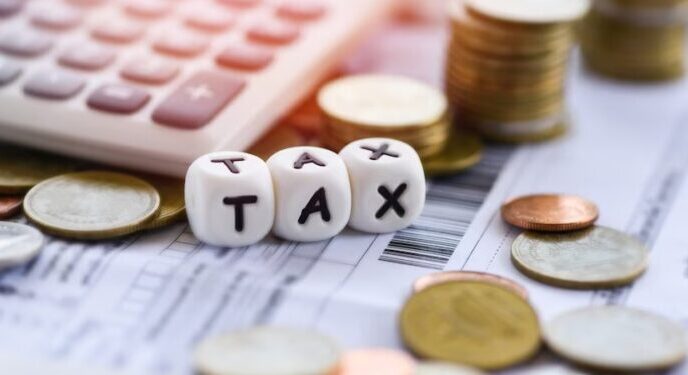Ujunwa Ojemeni
DID YOU KNOW that beside Ukraine, for obvious reasons, Nigeria received the highest amount of official development assistance from multilateral institutions in the world for the year 2022? But where did all this money go? Why is Nigeria losing investments? What can citizens do about it? Will Dangote Refinery change Nigeria’s foreign exchange and fiscal position? ‘MAYOWA TIJANI, TheCable’s editor-at-large, spoke with Ujunwa Ojemeni, a fellow of the Mo Ibrahim Foundation, who broke down more revelations from the foundation’s 2024 Financing Africa Report.
TheCable: Let’s start from the top. There’s a lot to unpack from this report, so I’d just ask, what is the key message that this report aims to share with stakeholders across the continent?
Ujunwa: What the report aims to achieve and is achieving already, is really around what we know, that Money or financing remains a key issue in Africa. However, the big point to take away is that there’s actually money. The money is actually there, what’s required is a change in the way we think, in the paradigm that’s currently in play across different levels, whether in terms of the tax system, illicit fund flows, whether it’s in terms of capacity as a continent or the trade-off we need to make. Also one of the key things for the continent is the point around balancing development versus climate. But understanding the energy access remains a big issue. So, this report also then reflects on some of the concerns around climate financing. The focus on mitigation against adaptation, which is a big issue for Africa. The third thing to take away is around how Africa wants to be viewed and how funding to Africa should be viewed. This whole idea around aid or charity needs to change. We need to view it more as a cooperation; there’s a lot of expertise information that needs to be shared across the board, in terms of the tax systems, in terms of our assets and green assets, especially critical minerals. One other point is not necessarily more money but better money, which is the quality of the financing — quantity is great, we surely need more, the statistics are clear, but what kind of funding is coming in? In what form? Is it doing us better or worse and how should it be deployed? Africa, we are not looking to be dependent or to remain donor-dependent. Not just more money that puts us in a worse position than we are now.
TheCable: You talked about the SDGs, there are some of them where we are doing so badly and there are others where we are doing so good. In fact, in some cases above the global average. What would you say is responsible for this disparity?
Ujunwa: That’s a good point. A couple of things affect the metrics or the measurements that come across. But in terms of why we might be doing good or bad in certain areas is really around leadership and governance. It’s a big issue on the continent and how we perform on the SDGs. For example, if you look at Mauritius, which is one of the countries that has ranked quite well in the Ibrahim Index of African governance. Across most of the indicators, you would see that it’s doing quite well, but you can also see that its governance is good. It has quite good governance and leadership and then we can extrapolate and say where you have good governance and leadership you see better performance.
Advertisement
Lots of countries are still facing challenges as you know and some of them do better on one hand but still do badly on the other. For instance, I’m sure you’ve seen that Algeria has achieved SDG1 and no poverty but still facing major challenges with no hunger (SDG2).
On the point, you made about doing better on certain SDGs and worse on certain ones. I think it depends on how you view it. For instance, the climate-related SDGs 12 and 13 are quite unique in terms of how they are measured. For instance, countries like Algeria, Tunisia, and Mauritius which are doing quite well on SDG1 are also facing challenges in achieving SDGs 12 and 13. But I think specifically on SDGs 12 and 13, it’s a very complex relationship because the less developed a country is, probably the better you might do when it comes to climate action. That’s because you are less industrialized, you don’t have as much emissions. Sadly, you might not have enough even electricity access.
TheCable: It sort of gives a picture of, if you’re doing well with SDGs 12 & 13, then you’re not doing well as a country
Advertisement
Ujunwa: In a sense, just because of the complex relationship. As we progress and as a continent, as we see ourselves do better in terms of social-economic development, we might likely start seeing ourselves dropping in climate-relevant indicators. So, we really need to do better reconciling that and I guess that’s where things around leapfrogging and using cleaner energy might help to manage that dilemma that we might potentially face.
As you said, since we’ve seen that, there’s an inverse relationship between those SDGs, we need to be proactive. What do we need to do to ensure that we don’t face those challenges? For example critical minerals, how do we ensure that good governance is there, since Africa has quite a good chunk of critical minerals? How do we ensure that we don’t start doing worse in terms of biodiversity? How do we use cleaner energy overall?
TheCable: Now that we’re speaking about resource-rich countries, one of the arguments that they make in these countries, Nigerian inclusive, is that we have the resources and we do not need to pay taxes. How do we then convince people to pay taxes?
Ujunwa: You make a good point. I think a couple of things; improving the tax system, so tax is not necessarily just about increasing taxes. So I don’t necessarily think that increasing taxes Is the way to improve tax collection or remittance. I believe there are other ways and there are other things that need to be done to ensure that you have a more robust tax system.
Advertisement
So I don’t necessarily think it’s linear to say, ‘Oh, increased taxes is the solution’. I think it’s improving the overall tax system, and I think it cuts across various specific areas. So one would be tackling tax evasion. I think there’s a big, big, gap; there’s big work that needs to be done around that. If we can close all of the loopholes and tackle tax evasion, I think that’s one way to ensure that we collect more taxes, not necessarily increase taxes. The second is really around illicit financial flows and this is where we really need to cooperate with our other international partners. That needs to be tracked, that needs to be stopped, and we need to do more around that to ensure that we don’t keep losing tax revenue. The other thing is really around formalising the informal economy. As you know, a large chunk of Africa is informal today, and within that system, it’s very difficult to pay taxes. I think that the people in the informal sector are largely happy to pay taxes if it’s in a structured way and if there’s transparency as well. I think it then goes back to the question around governance, being able to see the impact of the taxes you’re paying.
TheCable: One of the things that the report highlighted is that foreign direct investment (FDI) to Nigeria is in the negative by £187 million. Many more companies have left since the report was released. How do you recommend that the country starts to reverse this tide?
Ujunwa: I think it’s a bit of a challenge and the past couple of years have especially been hard on the continent but also specifically on Nigeria. But I think investors are keen on a couple of things. I’ve already highlighted one of them which I think is good governance. Without good governance, it’s very difficult to convince investors to have comfort in investing in a country. They want to be sure that the rule of law will come to play, they want to be sure that the investments will be protected by labour laws and things like that.
I think a second big one for me is really around the credit system. It doesn’t only affect Nigeria only, it affects the entire continent. So this idea around credit ratings, the risk assessment of African countries including, Nigeria, is one of the big factors affecting this big gap that we see in terms of trade and investment.
Advertisement
I think the big issue is the way that the continent and of course, Nigeria, is viewed and the stereotype attached to the current credit rating system that we have today. In Africa, only two, countries are investment grade, and 21 countries have no sovereign credit rating. I think there are a lot of stereotypes and things that affect other countries but they don’t get the backlash that we get in terms of credit rating.
Unfortunately, I think one of the things perpetrated by the media, which hopefully, you and colleagues would help to address. I think there’s that mismatch in terms of how the media sometimes reports things that affect our continent and then heightens that risk perception, which in turn affects interest rates and investment. So I think we need to tackle the issue around credit perceptions and credit rating and look locally on the continent to see how we can have our credit ratings, especially one that understands the factors affecting the continent. The ratings are just unfair; sometimes, the exact same thing is happening in different parts of the world, but we are rated differently.
Advertisement
TheCable: I know the report said a lot but the Dangote Refinery and how it’s able to meet all of Nigeria’s fuel needs and maybe even other countries within the continent. So, my question is once that happens, how do you see that changing the country’s fiscal position?
Ujunwa: The point around Dangote [Refinery] and what it could mean for Nigeria fiscally; you can’t make economic predictions about what will happen to the financial status of any one country. But linked to everything we’ve been saying is the point around good governance and how it’s a key enabler for driving this. Even when we get to full capacity and start providing for Nigeria and the rest of Africa. I think that you can’t take away the requirement for good governance to make our position change significantly, whether it’s fiscally or whatever the case. We don’t know where things will go but of course, it’s a good thing for Nigeria and the continent.
Advertisement
Without matching that with good governance, I think we would not reap all of the benefits of the hopeful progress that this development is going to bring. The second thing is really around utilising domestic resources. We already know that we need about 75 percent to 90 percent of domestic resource mobilisation, according to the AU, to achieve Agenda 2063. So, managing the resources that we would not have to be importing any longer with good governance, and ensuring that the ecosystem is working domestically will have to come together to help us move forward. To be honest, you can’t really make predictions on where it would go but we hope that with good governance, which is the key driver for all of these, with ensuring that we stay on top of utilising this domestic resource, we would be able to progress as a country.
TheCable: One of the things you’ve said in this interview is how important good governance is to everything. What’s our role — citizens, media — in all of these, if the government remains what the government is?
Advertisement
Ujunwa: I think we shouldn’t be pessimistic on where things might potentially go. I am hopeful that we are in era where the importance of good governance is being highlighted continuously, in an era where each country tries to do their best. One of the memorable things for me is Ibrahim Index of Africa Governance, which showcases where countries are in terms of governance, and some of the awards the foundation gives good leaders. I think it’s a very good incentive. But I don’t think that the job is completely left to government, I think we all have a role to play.
For instance, I gave the example of leveraging domestic resources. When it comes to taxes, are we paying our taxes? Are citizens evading taxes? As business or high-net-worth individuals, what are we doing about illicit financial flows? Some of these things are not completely in the remit of government, government sets the pace but we as citizens have to be honest citizens.
TheCable: In 2022, besides Ukraine, Nigeria had the largest inflow of official development assistance from multilateral institutions. If you tell a Nigerian $5 billion came into the country in form of aid in a calendar year, they would tell you they didn’t see the effect of that money. If we were to play our part as citizens, what should we be doing?
Ujunwa: As citizens, we need to hold governments accountable and I think two areas that we can encourage the government to be more accountable are more transparency around Financial flows; how much money is coming through ODA? Where is that funding going? What has it been used for? Asking government to be accountable is one way to do it. I think this will give citizens the comfort they need. But again, it’s for us, citizens to call for it as well, we can’t just be passive.
I think the second thing is really about better data to understand Africa’s financial situation. I think a lot of times when we even talk about it, what data is being used? I think it also covers credit ratings that we talked about before. So I think data is key, but as citizens we can call and even offer more insights to government. What kind of data do we want to see? What’s a better way for government to collect this data? The kind of data that will make it clear how much funding has come, and where it has flown to? It could be a dashboard, there are different ways to go about it, but I think citizens would enjoy more transparency.
Just to reiterate a couple of key messages; To be honest, I really just think that paradigm shift is important to, better quality money, even more than more money is required. Beyond having what other countries say they would do, honouring their pledges, we can do more around our own domestic resources and ensuring the existing financial flows are more efficient.
As we said before, let’s move beyond this donor dependency model and let’s take our place. Africa own growth development model where we have key assets that we can leverage including our green assets.
Ujunwa is a Senior Policy Advisor (Energy Transition & Technical Assistance Delivery) at E3G. She was an advisor to the commissioner for energy & mineral resources in Lagos State. She is a trustee of Solar Aid and was most recently recognised as one of the 21 women heroes working to end energy poverty by Power for All. She holds a Master’s in Public Policy from Oxford University and a Master’s in Development Finance from the University of Manchester.


